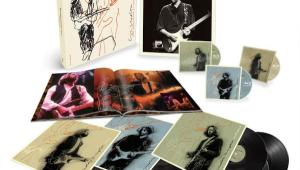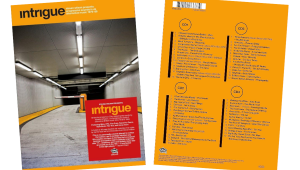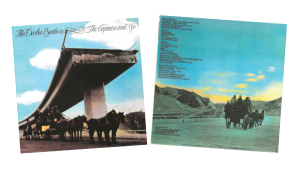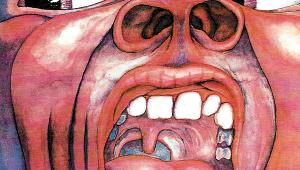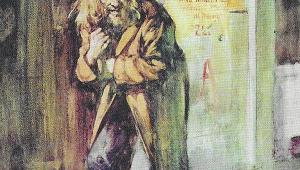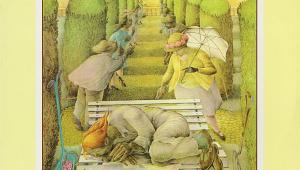CD Review: P J Harvey Page 2
 Of course, I dare say such things because Harvey has always insisted that her songs aren't always autobiographical. Spin magazine recently asked her if the new album was difficult to make. "No," she replied, "because sometimes the songs have nothing to do with me; it's not a diary. It does perplex me that people don't grant songwriters the same distance they grant novelists who write in the first person. I'm not interested in people knowing anything about me."
Of course, I dare say such things because Harvey has always insisted that her songs aren't always autobiographical. Spin magazine recently asked her if the new album was difficult to make. "No," she replied, "because sometimes the songs have nothing to do with me; it's not a diary. It does perplex me that people don't grant songwriters the same distance they grant novelists who write in the first person. I'm not interested in people knowing anything about me."
Yet there's no mistaking that, in its own language, White Chalk is an album defined by words like "alone," "lonely," and "sorrow." Meanwhile, there are two references to an "unborn child," as well as "something metal tearing my stomach out," but that's as far as I'm going with that . . .
We certainly are a long way from "Who the Fuck?" But again, getting back to Harvey's music and performance, let's remember that Uh Huh Her wasn't all profanely in your face. Tracks like "Pocket Knife," "The Slow Drug," "You Come Through," and (pay attention to these titles) "The Desperate Kingdom of Love" and "The Darker Days of Me and Him" point to the internalized expression of White Chalk. It's just that, whereas Harvey confessed in Her liner scrawls that "I'm not looking for continuity of sound," she has now made an album whose style is entirely Victorian Gothic - epitomized by the eeriness of "Grow Grow Grow," which is what The Nightmare Before Christmas might have sounded like if it had been scored by Harvey instead of Danny Elfman. And whereas she only occasionally told Her-self to "sing pained + girl and quiet" last time out, she now submits almost completely to the will of the wisp, with the emphasis on girl and quiet. It all adds up to an album whose major character (if it isn't Harvey herself) is atmosphere.
Granted, the keyboard that gingerly supports the songs isn't always exactly the same, evoking everything from a tack piano to a harpsichord. (And on "Broken Harp," it's replaced by . . . that's right.) But it's the recurring keyboard, voice, and sorrow - the sonic continuity, or lack of variety - that makes this album seem like mere sketches from the sea instead of a Major Statement.
Of course, this is Polly Jean Harvey, and her relatively "minor" statements can still be good, as White Chalk ultimately is. Furthermore, as she also told Spin magazine: "I can write 'P J Harvey albums' until the cows come home, but that doesn't interest me. . . . I'd rather write a not particularly strong record that sounded different than a bunch of strong songs in the same old way." And so she has. Nuff said.
more Entertainment reviews Back to Homepage What's New on S&V

